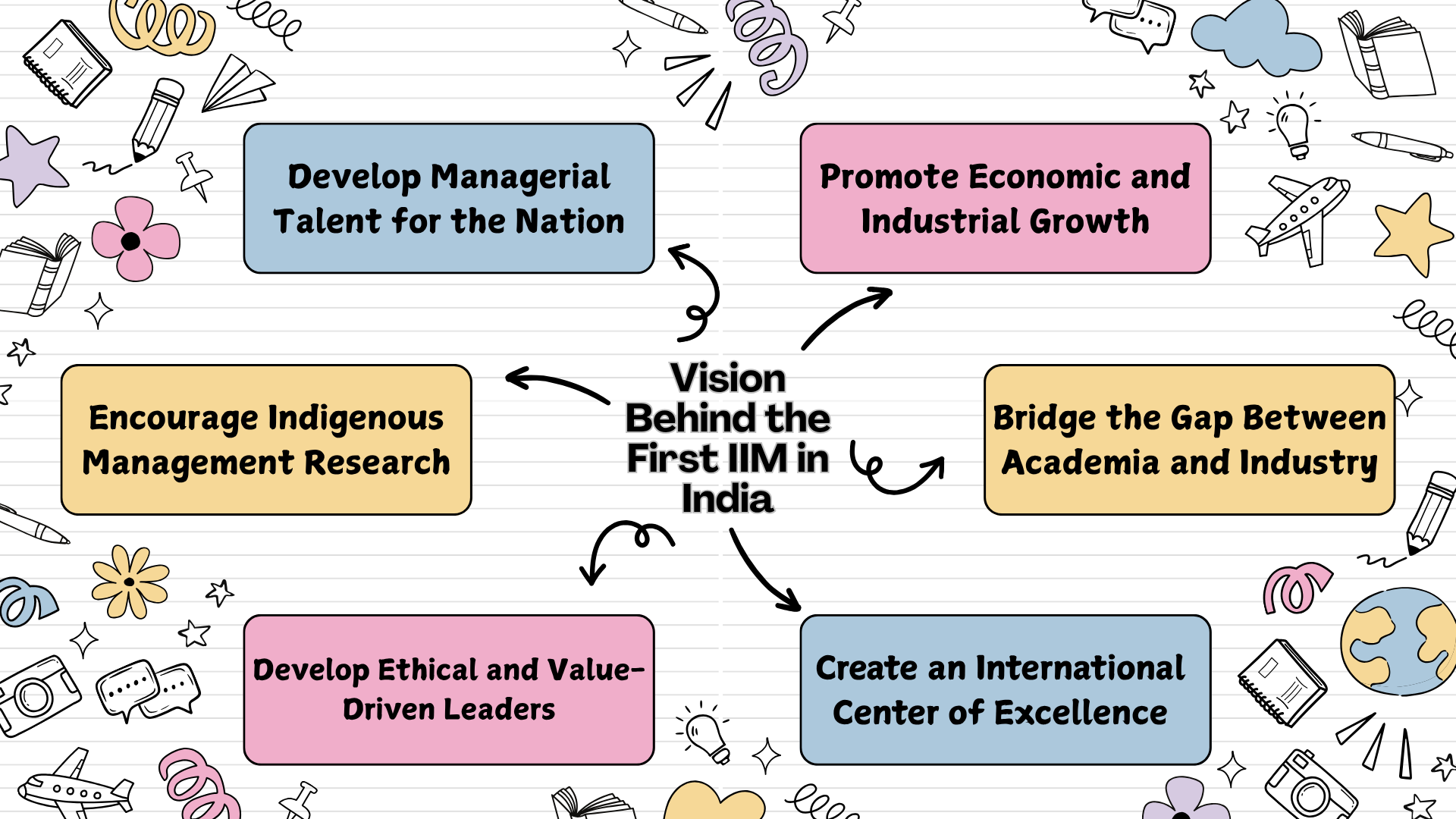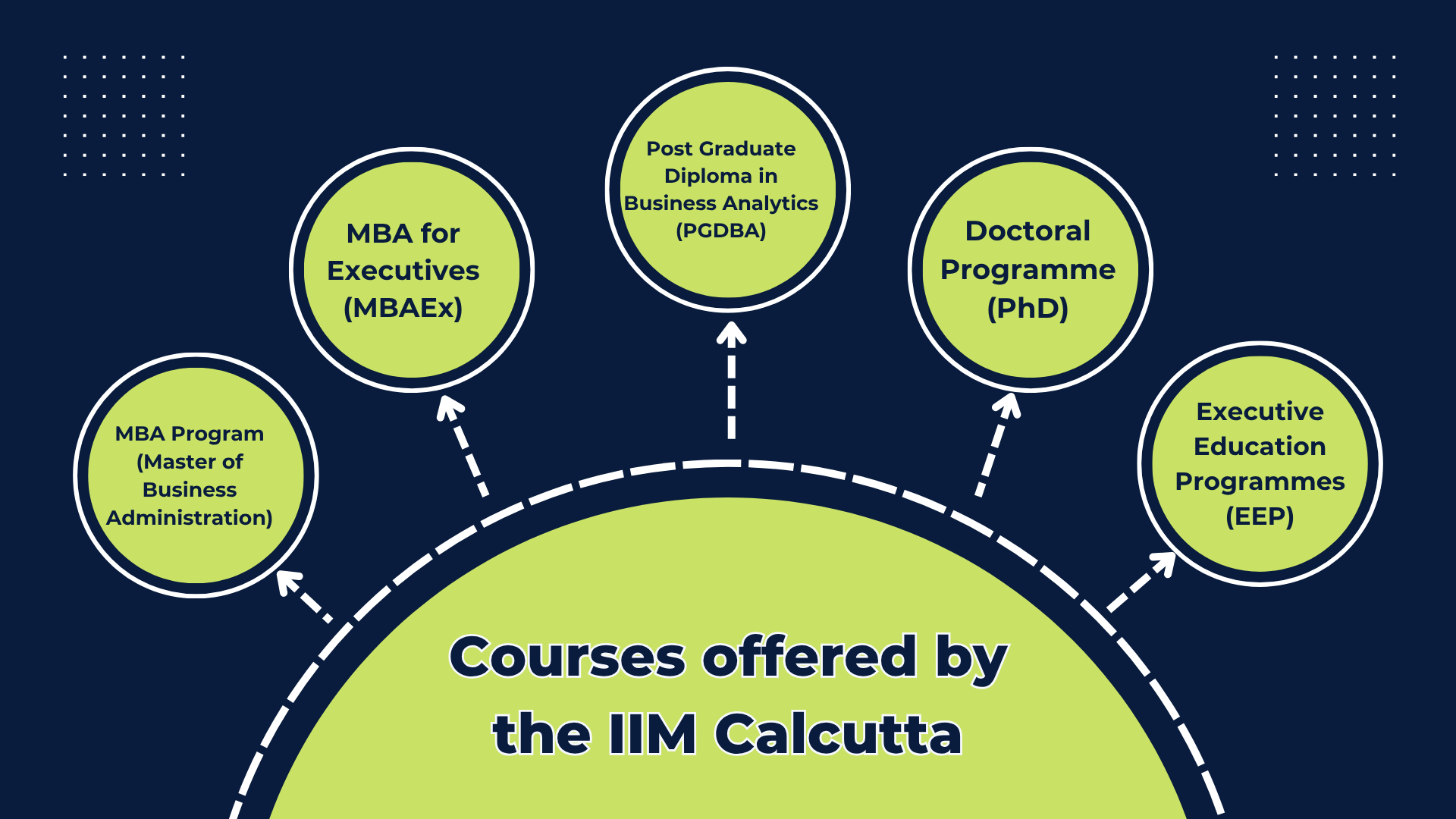First IIM in India: The first Indian Institute of Management (IIM) was the Indian Institute of Management Calcutta (IIMC), which opened its doors in November 1961. The Government of West Bengal, the Government of India, the Ford Foundation, and the MIT Sloan School of Management collaborated to create this groundbreaking initiative in management education. The Planning Commission's recommendations, which acknowledged the critical need for properly prepared managers to assist the nation's rapid industrial and economic development in the post-independence era, led to the creation of the IIMs as a strategic national effort.
After IIM Calcutta was established, IIM Ahmedabad (IIMA) was established in December 1961 in partnership with the Harvard Business School. Despite having been established just a few weeks apart, IIMC is officially the first in the now vast network of IIMs.
While IIM Ahmedabad gained notoriety for its use of the case study technique and its close connections to industry and entrepreneurial ecosystems, IIM Calcutta rapidly gained recognition for its quantitative techniques, finance, and analytics focus. India's premier management education was made possible by the dual foundation of two "First Generation IIMs" in 1961.
What is the Vision Behind the First IIM in India?

India's post-independence objective of nation-building via professionalization served as the inspiration for the founding of the first IIM, IIM Calcutta (IIMC), in 1961. The goal of Prime Minister Jawaharlal Nehru was to establish an industrialized, modern economy, which called for a specialized group of managers. The IIMs were intended to be independent, top-tier establishments that could compete with the world's top business schools.
-
Develop Managerial Talent for the Nation: To establish a professional cadre of managers to staff India's fast developing private sector and public sector businesses.
-
Promote Economic and Industrial Growth: To offer the leadership and management skills required to successfully oversee intricate economic development initiatives and hasten industrialization.
-
Achieve Global Benchmarking in Education: By working with organizations like the Ford Foundation and the MIT Sloan School of Management, we hope to create a top-notch benchmark for management education.
-
Encourage Indigenous Management Research: To carry out and encourage original research into management theories and practices that are especially appropriate for the distinctive Indian corporate environment.
-
Bridge the Gap Between Academia and Industry: To promote strong, cooperative relationships for mutual development and relevance between the corporate and industrial worlds and the educational sector.
-
Develop Ethical and Value-Driven Leaders: To create leaders who are not just capable but also responsive to the demands of society at large and guided by strong ethical ideals.
-
Create an International Center of Excellence: The ultimate goal is to become a global center for management education that is renowned for its academic excellence and rigor.
Courses offered by the IIM Calcutta

IIM Calcutta (IIMC) provides a wide range of programs, including doctoral studies, executive education, and full-time residential degrees. The primary courses available are highlighted in the following table:
| Program Name | Focus / Level | Duration | Eligibility/Audience |
| MBA Program (Master of Business Administration) | Flagship full-time degree; general management | 2 Years (Residential) | Graduates with a valid CAT score (or GMAT/GRE for international applicants). |
| MBA for Executives (MBAEx) | Full-time program for experienced professionals | 1 Year (Residential) | Graduates with a minimum of 5 years of full-time post-qualification managerial experience and a valid GMAT/GRE score. |
| Post Graduate Diploma in Business Analytics (PGDBA) | Jointly offered with IIT Kharagpur and ISI Kolkata | 2 Years (Residential) | Graduates with quantitative background (Engineering, Statistics, Math, etc.) and a valid score in the PGDBA admission test. |
| Doctoral Programme (PhD) | Research-focused, leading to a PhD degree | 4 - 5 Years | Master's degree or 5-year Integrated Master's degree with academic rigor. |
| Executive Education Programmes (EEP) | Non-degree short-term and long-duration programs | Varies (Typically 6 months to 1 year) | Working professionals looking for specialized knowledge or leadership development. |
Please Check:
-
Top IITs in QS Asia Rankings 2026- Indian Engineering Institutes Ranking
-
NEET PG 2025 Rank-wise Seat Allotment: Check Branch-wise Expected Closing Ranks
-
10 College Degrees Losing Value, According to Harvard – Better Alternatives to Study
Also Read:
Top IIT Colleges That Offer Data Science Courses to Learn Online in 2025
Best Free AI Courses for Beginners in 2025
Best Pharmacy Colleges in India 2025 After 12th Offering High Job Placement
To stay updated on current trends, join the Jagran Josh Telegram Community!
